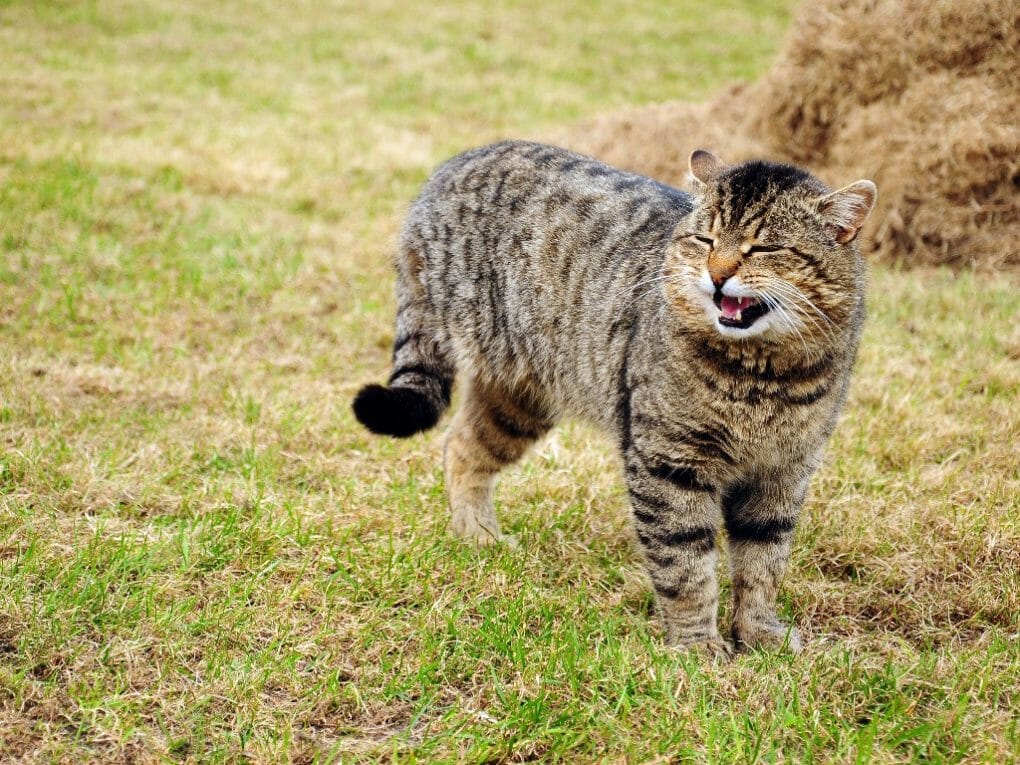How Long Do Cats Go Missing For: Reasons Cats Go Missing and How to Prevent It From Happening


It is usual for cats to go missing for about 24 hours. However, it’s crucial to take action when cats go missing for an extended period. Make sure you keep an eye out for your cat, and if you see them anywhere outside, don’t hesitate to call the vet or the police. Being patient is vital – cats can frequently be located safe and sound once reported missing!
Cats go missing for many different reasons, so it’s essential to be aware of the signs that your cat is missing. If you notice any changes in your cat’s behavior – such as increased hiding or lying around – take action and contact your veterinarian.
Table of Contents
Why Cats Go Missing
The most common reason cats go missing is when their families move or when they’re trying to find new homes. Common reasons also include those related to their well-being.
While Looking for a Mate
As cats are territorial animals, they rely on their sense of smell to find a mate. When your cat goes missing, his search can take him up to 1,500 feet away from home! So if you have an indoor cat, ensure he’s neutered or spayed to reduce the chances of getting lost.
Cats usually mark their territory by spraying urine and marking trees, walls, and other objects. If your cat has been missing for long periods and hasn’t been seen leaving the house recently, it is worth checking his territorial markings for clues. Alternatively, if your cat seems strange or is always going suddenly, this could signify that he needs professional help!
When Their Environments Change
When the environment around cats changes, they may feel insecure and look for a new home. This could be due to a change in their residence – such as if their owner moves – or another cat in the neighborhood.
Cats are natural hunters and may become lost when searching for food or a new territory. If you think your cat is missing, keep an eye out for them around the neighborhood.
If your cat is not returned after a reasonable amount of time, take steps to locate them, such as posting flyers or putting up posters.
When They Are Scared
Cats are natural hunters, and they get scared when they don’t know where their territory is. If your cat goes missing in an area that it is familiar with – such as its home or a place nearby – chances are it will return on its own soon enough. However, if the cat disappears from an unfamiliar place, a problem could be brewing.
In these cases, taking some simple steps can help ease the feline’s anxiety and make finding them easier: providing shelters or hiding places; playing with your cat frequently; offering food rewards when your cat comes back home safely (this might work better if you live close to wherever he went); putting up posters around the neighborhood describing what happened to him, etc.
What to Do When Your Cat Goes Missing
When one of your cats goes missing, it can be stressful. The best way to handle the situation is to be proactive and organized. Ensure you have the cat’s identification and vaccination information handy if someone reports the cat’s lost or found.
Do a Thorough Search
When cats go missing, their family members usually start to look for them first. If you are worried about your cat missing, you should first check its home territory.
Make sure to scour your home – under furniture, behind pictures, etc. – as cats often hide. And if you have a tracking device activated on your pet, set that up first!
Let Other People Know


You must ensure to let everyone know if our cat goes missing. By doing this, we eliminate the possibility of any confusion or misunderstanding. Along with writing down all the places your cat has been and the times they were there, it is a good idea to check for clues such as strange smells or blood stains.
If you can’t find your cat yourself and they haven’t returned home after several hours, calling the authorities might be what you need to bring them home safely again!
Leave Food and Water Outside Your Door
Leaving food and water outside your cat’s door ensures they are always well-fed and hydrated. This is especially important during the daytime as cats tend to wander away from home during these hours.
Cats are resilient animals and can survive for extended periods without food, but locating them as soon as possible is crucial. While they may become weakened and malnourished, it’s rare for a cat to starve itself to death. However, it’s essential to provide proper nutrition and medical attention once a missing cat is found to ensure their well-being and recovery.
If your cat does not return home within a reasonable time, it is best to contact your vet or local animal shelter.
Check Old Addresses
If your cat is missing for over a few hours, it’s best to check their old addresses. This way, you can find them even if they’ve gone far away from home. So keep an eye out for them and contact the local animal shelter if you don’t see them soon.
What You Can Do to Keep Your Cat From Getting Lost
Keeping your cat safe is essential; no one knows that better than cat parents. Ensure their collar and ID tag are current and affix them to visible areas on your cat, like the neck or back. Additionally, ensure food and water are always available and that you keep an eye on your cat’s surroundings.
Microchip Your Cat
Keeping your cat safe is essential, and microchipping them can make this much more manageable. Not only will you be able to track their movements, but if they get lost or are stolen, you’ll be able to find them much more quickly.
You should also always ensure they wear a tag with your contact information in an emergency. And lastly – make sure to regularly check the garden for any signs of your cat and call authorities if there’s anything wrong!
Use a Collar With a Name Tag
Keeping your cat’s collar and identification tag visible is the best way to ensure they are present. In addition, be sure to register your pet with the local animal control agency in case of an accident or if you ever lose them.
Installing a tracking device on their collar can also help you track down your cat if they get lost.
Make Sure Your Cat Is Neutered or Spayed
There are plenty of benefits to neutering or spaying your cat. However, unneutered or unspayed cats are more likely to get lost, which can be very frustrating for you and the cat.
Provide Your Cat With Plenty of Stimulation
Providing your cat with plenty of stimulation is essential for its well-being. You can provide them with toys, a scratching post, and a hiding place. Make sure you are always on the lookout for signs that your cat needs attention – if they go missing for more than two hours, it’s time to contact someone!
Take Precautions When You Leave Them Home Alone


Leaving your cat alone can be tricky, but ensuring they are safe is crucial. Make sure to put a collar and ID tag on them, give them water and food, and create a routine, so they know what to do in an emergency.
If you’re going to leave for an extended time, try installing a motion-activated camera so that you can keep an eye on them at all times.
